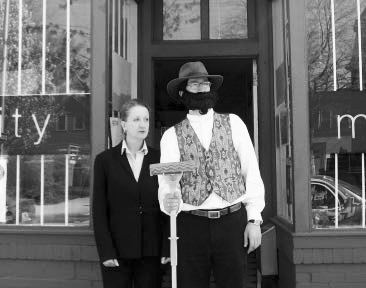Liz Cox
Liz Cox has worked at CMW since 2006 and serves as Director of Communications and Administration. She played drums, percussion, sang lead vocals and wrote music in the bands Christmas and Combustible Edison. Liz performed on Late Night with Conan O’Brien, recorded the soundtrack for the film Four Rooms and sang Lesley Gore’s “My Secret Love” for the film Grace of My Heart. After hours, Liz volunteers as a drum and vocal teacher for Girls Rock! RI and writes essays and short fiction.
I quit college to join a rock band. Couple of bands, lots of tours, did some film soundtracks and a bunch of CDs, and it got old. I don’t know if it got old or I got old. Maybe both. After 20 years, I quit rock to go back to college. I was supporting myself as an office manager for a psychotherapy practice and decided that I could do better.
I saw the ad for the CMW job. I looked at their blog and I saw a piece Jesse Holstein wrote. It was about going to San Francisco with Heath [Marlow, former Managing Director]. The rental place was out of small vehicles so they gave them a luxury car. So Heath and Jesse drove around in a big Cadillac and I was just, “Yeah, you did! And you wrote about it. That is so cool.” I thought, sure, a million people can probably do this admin stuff but I’ve been a musician for 20 years and I speak that language.
It doesn’t take long to realize that CMW has a culture where it’s all hands on deck. If you have a skill and if it’s a skill baking bread or if it’s a skill coming up with snappy slogans, it’s all well used. It can be a little overwhelming, but the change and chaos is also one of the appealing things. You have to be creative because you often have to make something up on the spot. There isn’t an inbox and an outbox. Well, there is for certain tasks I do, but for the overall mission, you don’t go home on Friday night and go, “Social justice accomplished, check!” What’s great is that I don’t have to go into CMW and make something happen. It’s happening! I just have to make it happen nicely and on time. [Laughs]
When I first started at CMW I probably had to google social justice to understand, what does that really mean? Is it the court system? I really didn’t know the terminology. I used to think the mission had nothing to do with me because I wasn’t directly making a difference in the lives of children, families and musicians. I would puzzle over it: How am I doing that by setting up the board meeting materials? The way I see it now is that I’m supporting amazing people that I like a whole lot so that they can go off and do what they do.
Another big part of my job is being an emotional support center. It’s naturally who I am, but I hadn’t realized how much energy I put into relating and connecting with people, making them feel comfortable. I hadn’t realized that it was not something everybody does until it was reflected back to me. So, the mailman’s having a bummer day, we’re going to talk about it. I’m not even kidding! Whoever is standing in front of you, there’s your chance to make the mission work. There’s your chance to make the world a better place. Yup. One person, one conversation at a time.
So that’s half of what motivates me, and the other half is that people are really seen at CMW. Their skills and talents and even preferences are taken into account. Things are pulled out of you and used really well. In a wonderful way CMW has become a mirror for me. People in the organization can see what you’re capable of and what you’re inclined toward and they encourage you to do it. And so I might have suspected that I was good at writing, but the communications piece of my job evolved over time because it was called out of me. I got to see what my strengths are.
About a year ago, Girl Rock! RI, another local non-profit, needed somebody to do drum instruction for the Ladies Rock Camp, and I had never taught drums before. I was so afraid of the idea that I knew I had to do it. I thought about the ways that I’ve witnessed the CMW staff teaching in group settings. I decided, “You know what? I can do this.” I never would have thought that if I hadn’t been a staff member at CMW. Teaching is not just about doling out wisdom and time signatures and how many beats per measure kind of thing. In this case it was about having somebody believe over the course of the weekend that they could pull something off that seems impossible. That was something that I knew from CMW.
My favorite CMW memory is of a very particular day in 2008. The Providence String Quartet had done a school program and I was the narrator. I was so dressed up in this power pantsuit that nobody recognized me! Sebastian’s job in the skit was to be the composer Dvořák. It was a lot of fun. When we got back to the office he still had the fake beard and I had on my severe suit and we went outside and recreated the American Gothic painting with a sponge mop.* Then we were transitioning to lessons and Kirby, a student, came into the office, saying, “Oh my God, there’s a dead rat outside!” She was freaking out. So Sebastian put on bright yellow dishwashing gloves, got a plastic bag and went outside. It was like that movie, “The Hurt Locker,” and the rat was a bomb. Now Sebastian was walking down the street to bring this rat to the trash and a staff member, Sara [Stalnaker], came up to him with something really urgent to discuss. Sara was talking, animated, and Sebastian was very thoughtfully walking along with her and talking seriously, wearing the yellow dishwashing gloves and holding the rat in the bag. [Laughs] I loved everything about that. Well, poor rat, though.
I know we share the model of CMW already through the Fellows and IMPS (Institute for Musicianship and Public Service), but I wish we could nail it down in a book or a movie or a documentary. There needs to be a CMW video game or an app.
*Liz and Antonín Dvořák at CMW
Back to the 20 Stories homepage.



